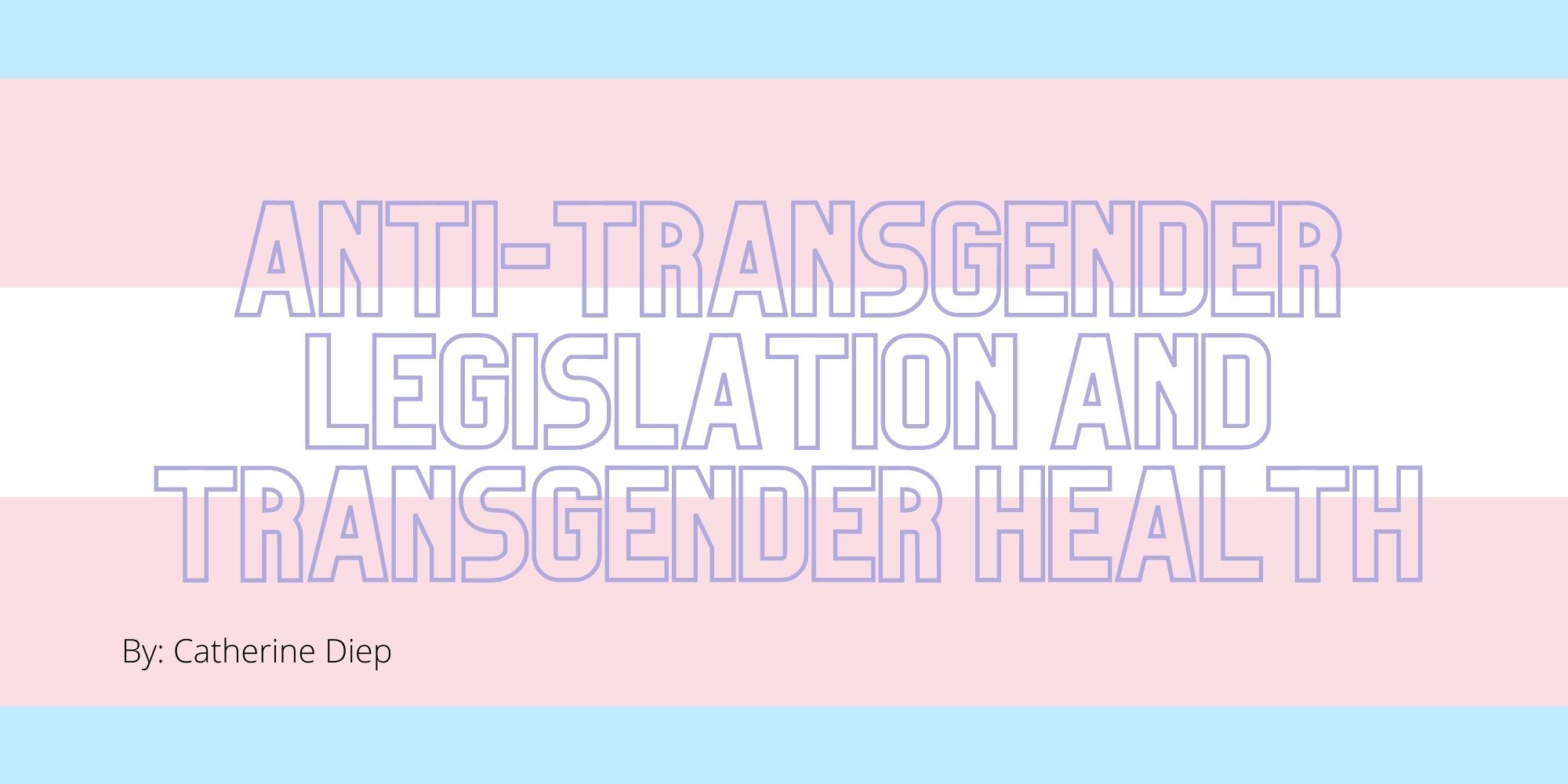 Author: Cathy Diep
Author: Cathy DiepTransgender individuals have long faced harassment, discrimination, and barriers that have a negative impact on both their physical and psychological well-being. Much of American society is unaccepting of transgender individuals because it refuses to acknowledge that one’s gender may vary from their assigned sex at birth. The belief that one’s assigned sex is undeniably their true gender has led to many forms of discrimination and systematic anti-transgender policies, which has led to severe impacts on transgender individuals’ health, including high rates of suicide. While acceptance of transgender individuals has generally increased over the past few decades, anti-transgender sentiment is still widespread. In 2021, a record-breaking number of anti-transgender legislation has been introduced in state legislatures, much of which has been opposed by transgender advocacy groups and medical groups such as the American Medical Association.
Anti-transgender legislation takes on many forms. One widespread anti-transgender policy prevents transgender individuals from accessing bathrooms aligning with their gender identity. Another anti-transgender policy, which was reinstated during Donald Trump’s presidency (but later revoked by President Joe Biden), banned transgender individuals from serving in the military. Many anti-transgender policies and much legislation targets transgender youth, such as bans on transgender girls from high school sports teams.
Anti-transgender policies contribute to transgender individuals’ lower rates of well-being. In a 2015 survey conducted by The National Center for Transgender Equality, it was found that 39% of survey respondents had experienced serious psychological distress in the month before the survey was taken, almost 8 times higher than the rate of the general population. Not only are transgender individuals likely to have lower rates of well-being, but the impacts of anti-transgender animosity have contributed to high rates of suicide. 40% of transgender individuals have attempted suicide within their lifetimes, a figure that is 9 times higher than that of the general population.
As of April 2021, 33 states have introduced over 100 anti-transgender bills that take away transgender individuals’ rights and promote discrimination. Many of these bills target transgender youth, and have been created under the pretense of protecting transgender minors and their cisgender classmates. 31 states have introduced legislation which would ban transgender girls from participating in high school sports, and 3 states passed this legislation into law. Perhaps even more disturbingly, 20 states have created legislation which would restrict transgender minors’ access to gender-affirming medical care, and Arkansas is the first state to have passed a complete ban on this crucial clinical care.
The American Medical Association (AMA) has come out in opposition to anti-transgender policies because of their negative impacts of transgender youth’s health. The American Medical Association emphasizes the importance of giving transgender youth gender-affirming care, which is essential for their mental and physical health. Additionally, the AMA states that legislation banning transgender girls from sports teams causes negative mental health outcomes. Anti-transgender policies which prevent transgender youth from behaving in accordance with their gender identity and from seeking gender-affirming care have a severe impact on transgender youth health, and are not grounded in medicine.
In light of the animosity and discrimination that transgender individuals already face, as well as the existing health disparities and overall poorer health and psychological well-being of transgender individuals, the impact of this anti-transgender legislation upon transgender individuals’ health must be further evaluated. While anti-transgender policies are surging in state legislatures, public sentiment is overwhelmingly against them. It may take years, but with societal acceptance of transgender individuals, advocacy from medical, transgender, and law groups, and the passage of legislation that will bolster, rather than diminish transgender individuals’ rights, perhaps society will be able to evolve and move towards a future where transgender individuals are healthy and valued.









